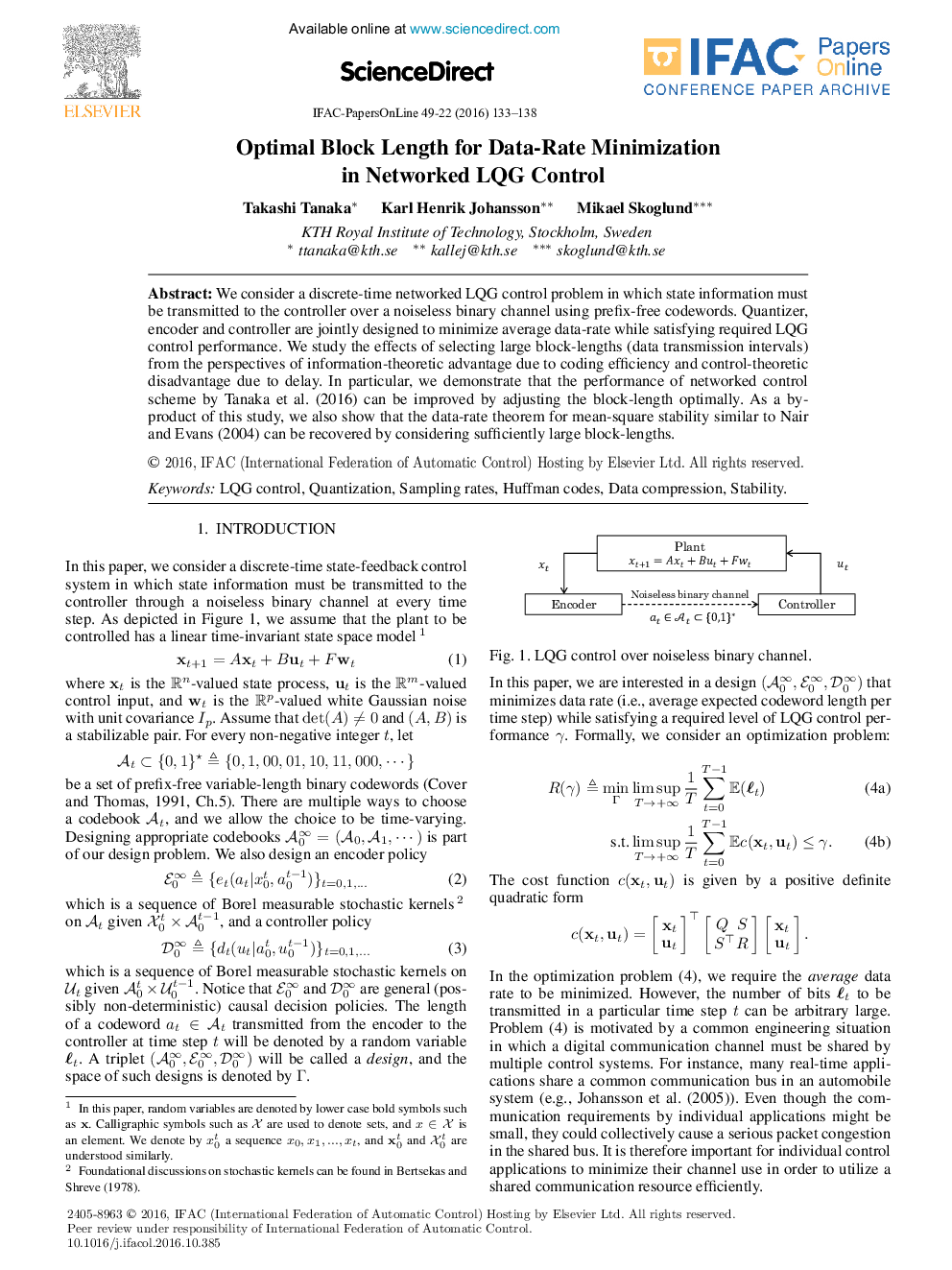| Article ID | Journal | Published Year | Pages | File Type |
|---|---|---|---|---|
| 5002203 | IFAC-PapersOnLine | 2016 | 6 Pages |
Abstract
We consider a discrete-time networked LQG control problem in which state information must be transmitted to the controller over a noiseless binary channel using prefix-free codewords. Quantizer, encoder and controller are jointly designed to minimize average data-rate while satisfying required LQG control performance. We study the effects of selecting large block-lengths (data transmission intervals) from the perspectives of information-theoretic advantage due to coding efficiency and control-theoretic disadvantage due to delay. In particular, we demonstrate that the performance of networked control scheme by Tanaka et al. (2016) can be improved by adjusting the block-length optimally. As a byproduct of this study, we also show that the data-rate theorem for mean-square stability similar to Nair and Evans (2004) can be recovered by considering sufficiently large block-lengths.
Related Topics
Physical Sciences and Engineering
Engineering
Computational Mechanics
Authors
Takashi Tanaka, Karl Henrik Johansson, Mikael Skoglund,
